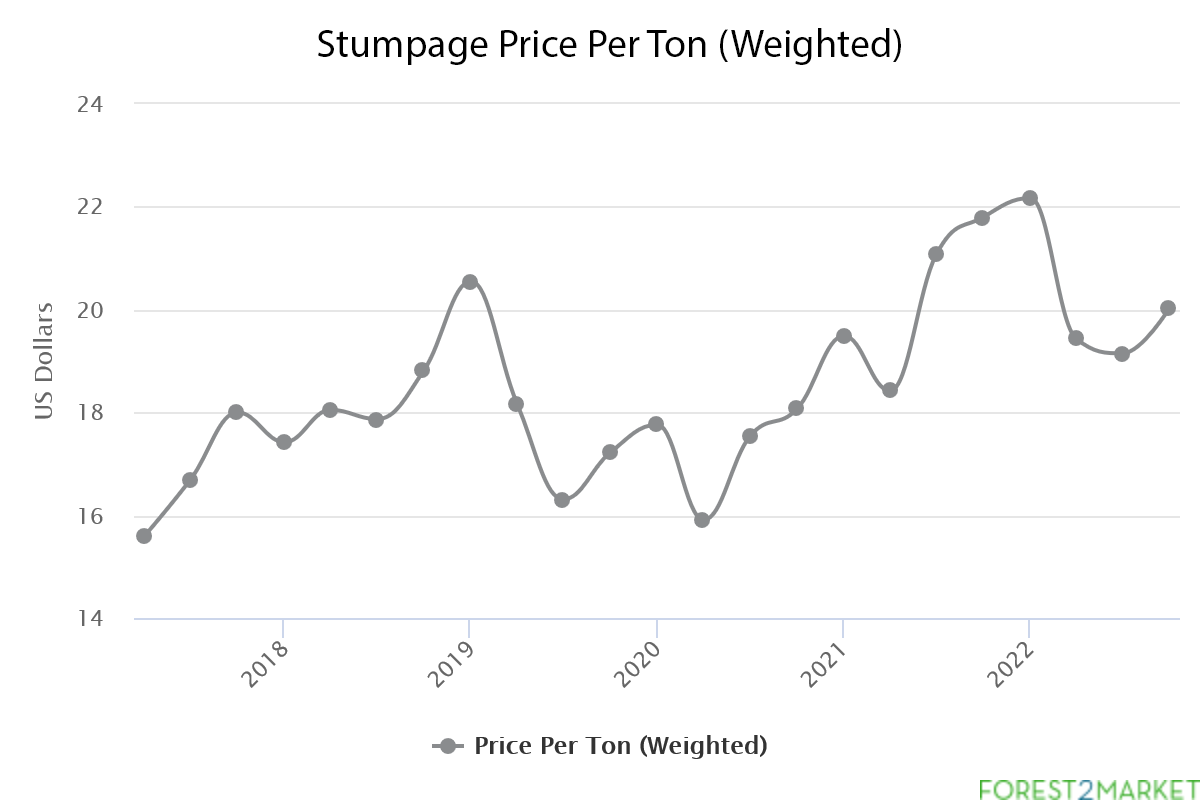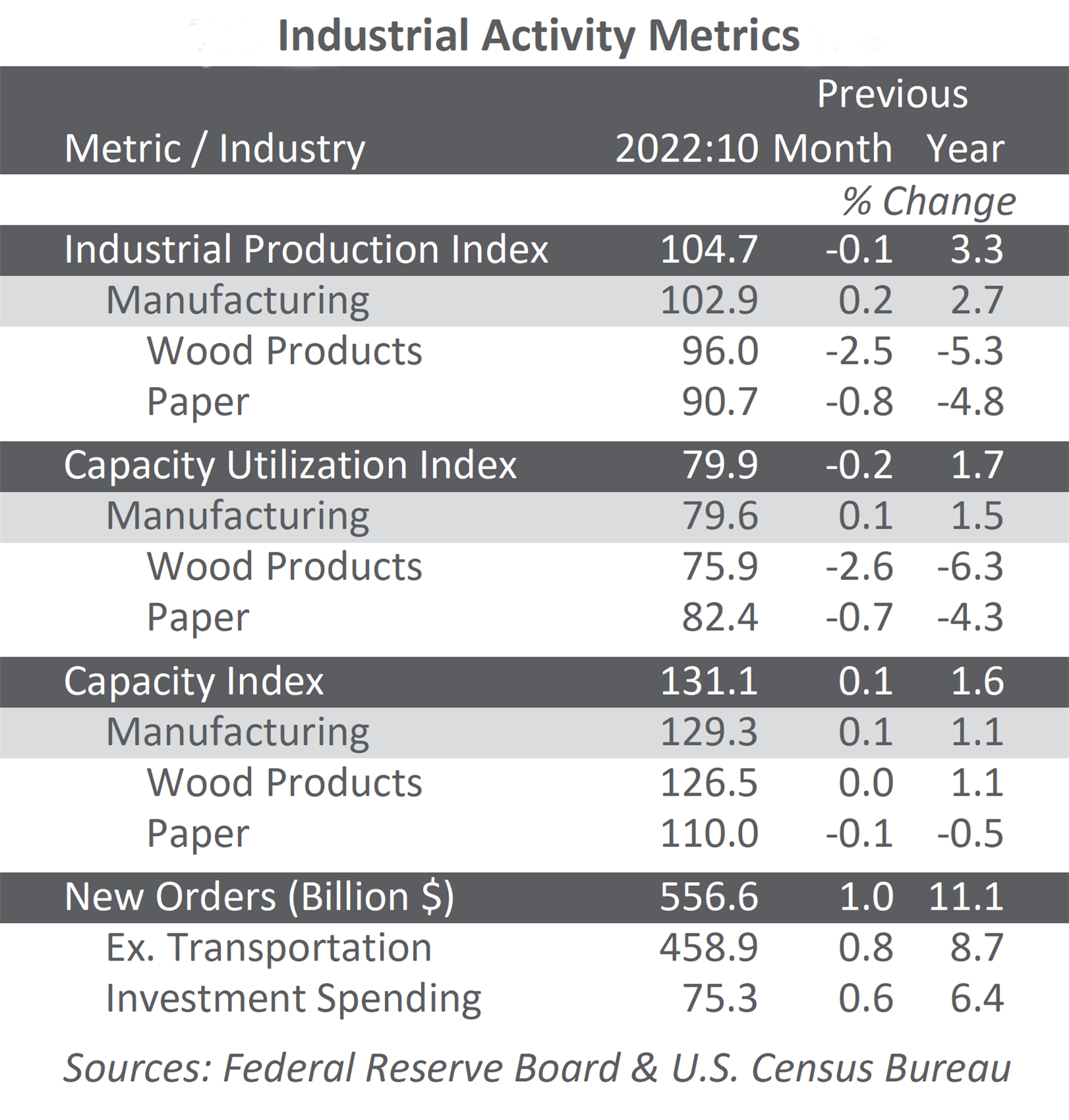The following information was recently published by our friends at Forest Resources Association (FRA) and written by Tim O'Hara, Vice President, Government Affairs and Manager, Lake States Region.
The ongoing supply chain crisis impacts all sectors of the forest products industry. As the inefficiencies continue and worsen, the wood supply chain suffers from the logging operations that supply consuming mills with fiber, manufacturing delays in production, and the timely delivery of outbound products. These inefficiencies lead to increased costs of products to consumers. Below are examples of wood supply chain issues currently impacting the marketplace:
- A sawmill company that supplies customers with lumber and sawmill residuals in the Southeast U.S. is experiencing delays in building winter log inventory due to the truck driver shortage. Many large wood suppliers have trucks parked due to a lack of driver availability. In-woods production has decreased 20%. Internal costs and inefficiencies have increased due to the lack of availability of rail transportation and diverting planned rail outbound shipments to an already strained truck transportation.
- A timberland investment manager that manages forestland in sixteen states has experienced significant cost increases in labor and supply. Keeping forests sustainable and providing the resources for products Americans need costs substantially more today. Supply costs have increased, including herbicides (+125%), fertilizer (+95%), and diesel fuel (+50%). Production costs have additionally increased for labor (+10%), transportation (+20%), and timber harvest operations (+10%). Materials used to maintain roads have increased 100%.
- A paper and packaging company reports that the single biggest limiting factor in operations has been the ability to find sufficient trucking to move available roundwood and wood chips. Over the past six months, they have slowed production at several mills due to supply chain constraints on both inbound raw materials and outbound finished products. While trucking is at the center of the issue as it relates to wood supply, all major forms of transport (truck, rail, ocean) are contributing to supply chain constraints. This has led to at least $50MM in increases in inbound supply chain costs.
- An engineered wood products company that provides construction building materials reports the cost of raw materials has increased significantly. Suppliers are experiencing labor shortages and wage increases, which impact customer costs. The cost of wood fiber supply is increasing. Truck and rail transportation for outbound products have realized increased costs and availability. Limited railcar supply has impacted facilities causing temporary curtailments and/or shutdowns.
- A trucking company that hauls raw forest products domestically and to and from Canada has experienced significant increases in costs over the past year. Labor has increased 25% and diesel fuel 50%. Trailers and tractors are taking more than six months to receive. This company will additionally be impacted by the vaccine requirement for drivers hauling forest products to and from Canada to the U.S. The company anticipates losing more than 50 percent of its drivers that haul products to Canada due to the vaccine requirement which will be implemented in early 2022.
- A logging and trucking company located in Minnesota has been waiting for parts to fix road building equipment for more than two months. Trailers to haul logs were ordered more than six months ago and still have not been received. New trucks ordered today are more than one year out. Maintenance items subject to wear, such as saw blades and saw bits, are more than three months out.
- A logging business in Florida has realized increased labor costs of 20% and diesel fuel price increases of 50%. With the labor shortage, they are additionally hiring a labor pool that is less dependable than in the past. Parts to repair equipment take six months to receive, and new logging equipment is more than four months out.
- A logging business in the Northeast U.S. has been waiting for parts to fix in-woods equipment (skidder) for two weeks. It is expected that the required part will be here in late December. The business owner has been told that the part, normally available locally, is on a shipping container off the Port of Los Angeles. This delay will result in a significant loss of timber production during the busy winter harvest season.
The impacts of the supply chain crisis on the forest products industry are real. The effects of dramatically increasing costs for labor, equipment, parts, and raw materials will increase the cost of manufacturing in the U.S., making the forest product sector less competitive in the global marketplace. FRA urges Members of Congress to address the supply chain crisis expeditiously in a bipartisan manner.








